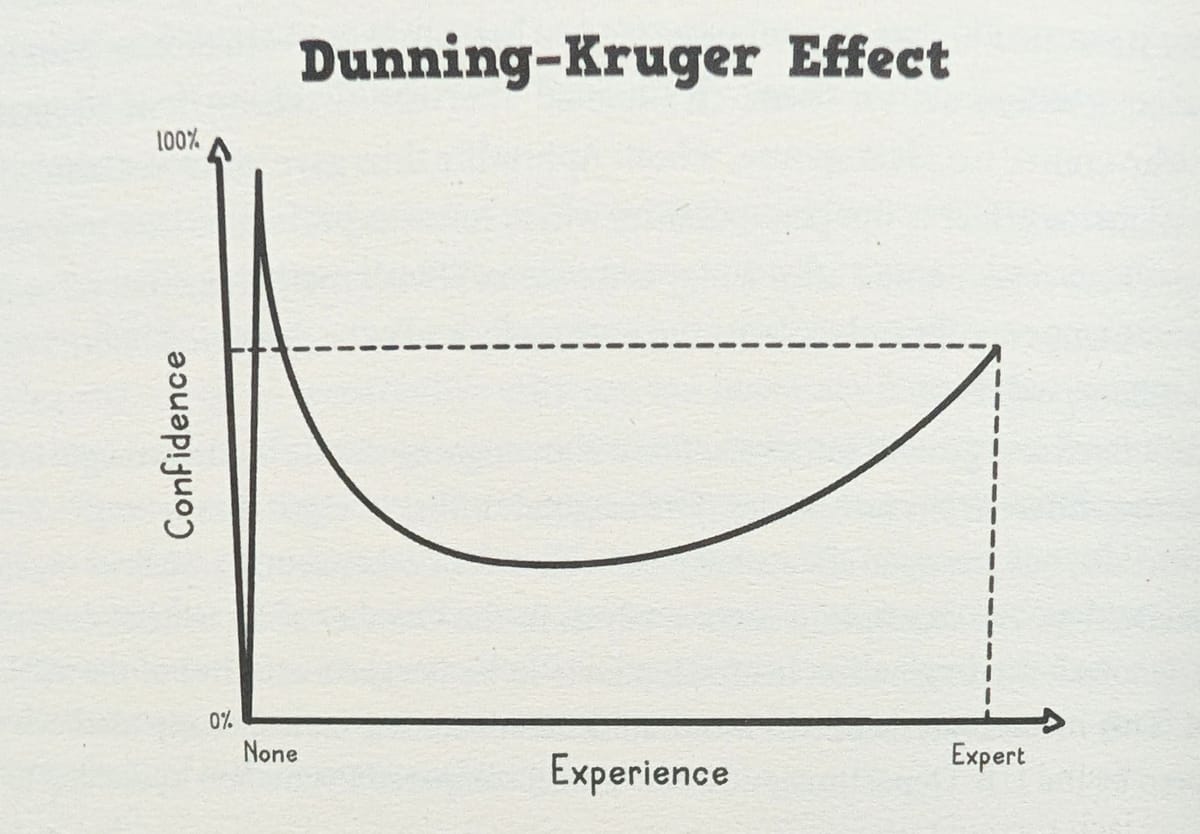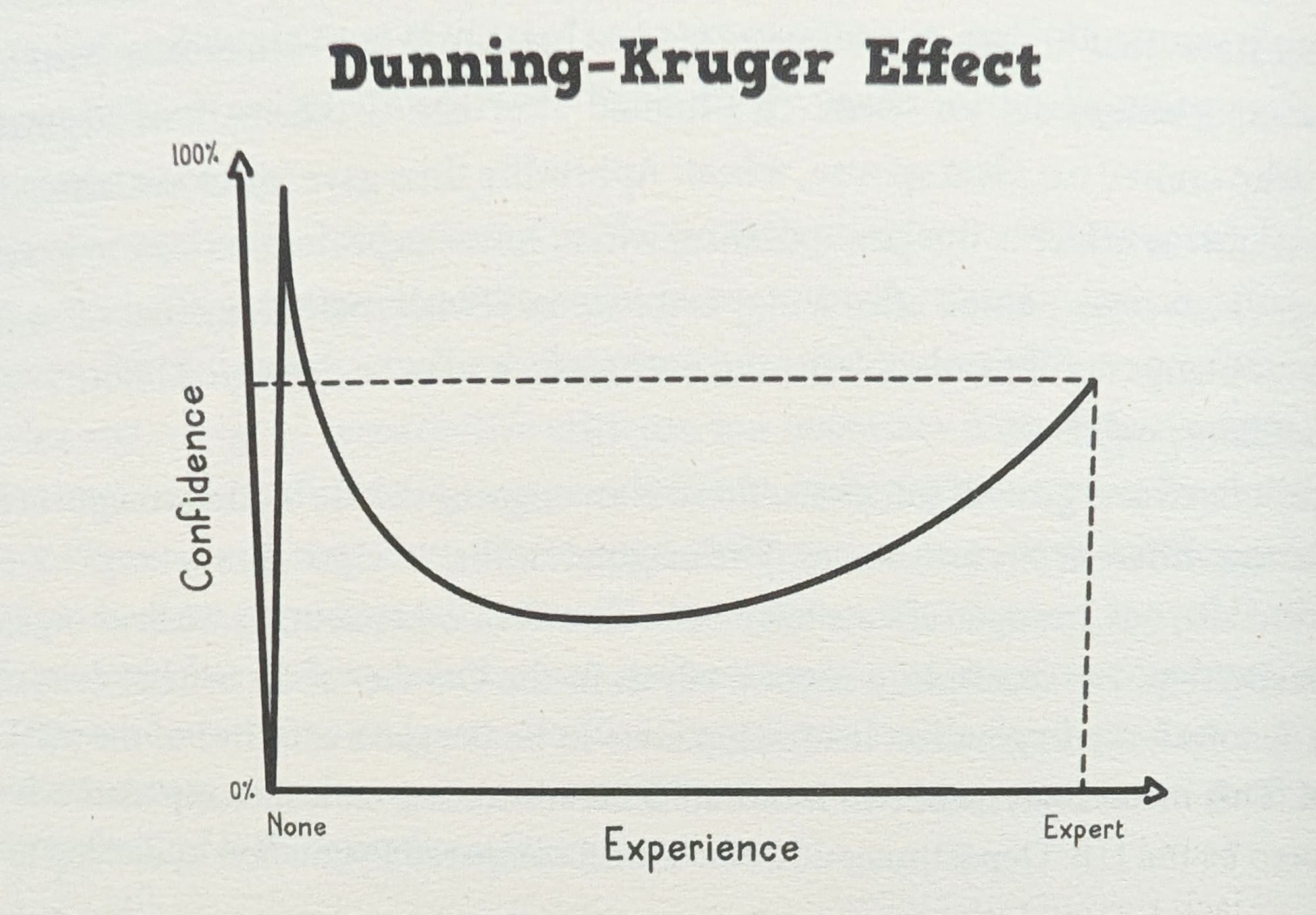Self Confidence and Dunning-Kruger Effect

The Dunning–Kruger effect is a cognitive bias in which people with limited competence in a particular domain over or under estimate their abilities. It was first described by David Dunning and Justin Kruger in 1999.
Put simply on a graph, we humans tend to mis-evaluate our actual competency around a specific skill, resulting in over-confidence or lack of confidence at different stages of competency building.

Assuming that we put in conscious efforts to improve our skills in a specific area, our competency level should actually improve steadily, or sometimes, compound exponentially if we build complementary skillsets.
Dunning–Kruger effect explains that most people tend to feel overly confident about their actually competency at the beginning, thinking that we know everything. The initial easy wins have given too much a boost to our confidence.
As we spend more time to go deeper into the subject, we start to discover more aspects and complexity of the subject. This is when we start to realised that we hardly know enough yet, creating a confidence dip so much so that we start to underestimate our capability.
So knowing the Dunning–Kruger effect and our mental bias, how do we have a more accurate assessment of my competency on a certain skill?
Here are a few simple strategies:
- Seek Feedback: Actively solicit feedback from trusted mentors, colleagues, or instructors. Their objective perspective can provide valuable insights into your strengths and weaknesses.
- Engage in Self-Reflection: Regularly analyze your performance, identifying areas where you excel and those that require improvement. Consider keeping a journal to track your progress and challenges. Focus on writing down tasks that you could perform now but couldn't in the past.
- Practice Deliberate Practice: Focus on specific areas for improvement and dedicate consistent effort to targeted skill development. This involves setting clear goals, breaking down complex tasks into smaller steps, and seeking feedback on your progress.
- Embrace Challenges: Step outside your comfort zone and tackle tasks that push your limits. This can help you identify areas where you need to grow and develop new skills.
- Recognize the Limits of Your Knowledge: Be open to the possibility that you may not know everything, and actively seek out new information and perspectives. This can help you avoid the pitfalls of overconfidence